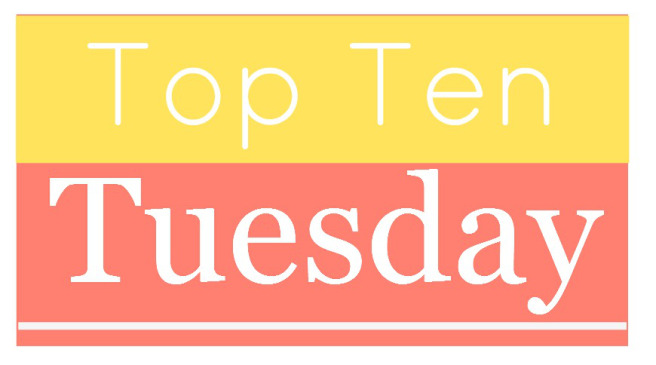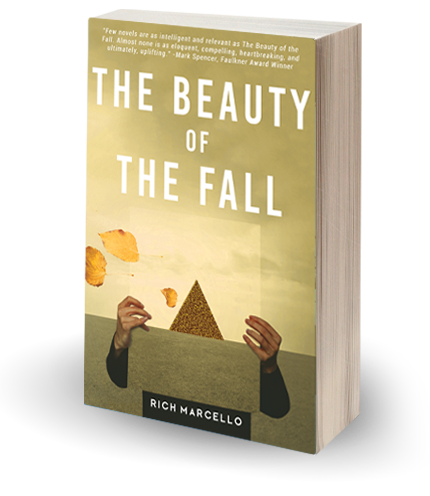 Books bought:
Books bought:
- Here We Are Now, Jasmine Warga
- Letters of Marshall McLuhan, Marshall McLuhan (ed. Matie Molinaro)
- Before We Were Yours, Lisa Wingate
- The Black Album, Hanif Kureishi
- Officers and Gentlemen, Evelyn Waugh
- Here We Are Now, Jasmine Warga
- Unconditional Surrender, Evelyn Waugh
This had been my bedtime reading for a few months, and man, it was a total slog. McLuhan is not the most engaging correspondent, especially in his later years, as the correspondence becomes more and more academic and less and less comprehensible. Not much personal stuff or gossip here–although perhaps that’s because of who was putting together the collection (I think his wife played a key role)? Ultimately, it seems that as much as I would like to be into Marshall McLuhan, I’m maybe just not that into Marshall McLuhan.
Still, let’s get into some excerpts:
Dear Pound
McLuhan has corn-sidered usury and noted certain obsessions of his contemporaries which make it endemic. Always struck by Aquinas’s definition of incest as “avarice of the emotions”. That sets usury in universal perspective of fear and hatred. Incest is the impulse of the threatened patriarch. Usury the impulse of the fearful citizen.
Current illusion is that science has abolished all natural laws. Nature now pays 5 million %. Applied science now the master usurer. To hell with our top soil. We can grow potatoes on the moon tomorrow. How you goan to expose that while there is still human “life” on the planet?
2nd war produced great discovery of war as new way of life. Financial pages simply chortling these days over a prosperity rooted in 3rd war. Ordinary guy eats this up. Total war = total security he figures. THAT is the scale of imbecility now current.
Life Jan 1/51 War assets issue. Pin-up girls featured as major asset. I have tried, in forthcoming (March) Mechanical Bride to devise a technique for elucidating this scene. It can’t be satirized. Trouble with duffers like Geo. Orwell is that they satirize something that happened 50 yrs ago as a threat of the futute! Effect is narcotic. Regards.
(To Ezra Pound, January 1951)
The letters to Ezra Pound were probably the high point of the collection, since you can see a definite change in McLuhan’s writing style there–an attempt, conscious or not, to write Pound-style. There’s a published collection of the correspondence between Pound and E.E. Cummings and I would fucking love to get my hands on that, because the excerpts you can see via Google Books are insane.
—
[Marshall’s] letters were a constant delight, even when they included those terrible puns he used to urge me to use in political debate.
(From Prime Minister Trudeau to Corinne McLuhan, January 7, 1981)
I love this. Unfortunately, I don’t think those are the letters to Trudeau that we see in this collection.
—
One major misunderstanding concerns my “style” which happens to be a very good style for getting attention. As for getting understanding, that depends entirely upon the reader. The user is always the content, and the user is often very evasive, or very stupid. Nobody could pretend serious interest in my work who was not completely familiar with all of the works of James Joyce and the French Symbolists.
(To Marshall Fishwick; July 31, 1974)
Well, you’ve got me there, man.
—
And to bring this back:
Marshall McLuhan is a Super Prescient Visionary:
By the way, one of the peculiar aspects of my own work is that I study the effects of various human technologies as they relate to psyche and society. Try it sometime. Simply begin to ask about any item within range or reach, what effects it has had upon the users and on the other artifacts. If you have a Xerox at your school, simply make a brief inventory of some of the changes that have taken place in your own activities at the school as a result of Xerox. Now, the strange thing about studying effects (which, by the way, is formal causality) is that it alarms and angers people. For example, it is not possible to say the Latin Mass into a microphone. The moment you point this out, people assume that you are the enemy of all microphones, and perhaps the enemy of the Mass as well. Since nearly all effects of anything tend to be subliminal and hidden, it may be that studying them panics people into supposing you are invading their privacy. When studying effects it is very difficult, of not impossible, to make value judgments. So I have long ago given up moralizing about technology and the media. Yet, I am considered to be the deadly enemy of the printed word, simply because I notice some of the impact it had in shaping our world.
(To Hugh and Winifred Lane, June 18, 1974)
Marshall McLuhan is Super Full of Shit:
Let me apologize for Miller’s obtuseness at once. If he does not dig “hot” and “cool”, there is an historical excuse for Miller in that the first age of radio regarded itself as “hot”. The 20s were the period of hot jazz, hot mommas, hot lips and hot tips. The “cool” age came with TV. But that which was called “hot” in the 20’s was called “cool” in the fifties. Today “hot pants” are real cool and “far out”. “Hot” meant involved in the 20’s as “cool” did in the fifties. What had been called a “cool head” before radio, meant detached and disinterested and uninvolved. That is, in 1900 “cool” meant what would now be regarded “hot”, in the sense of permitting specialized and fragmentary awareness to the individual. When one is “with it” one is “cool”, sharing corporate awareness. The private point of view is “hot” because it is detached and non-corporate. The great variety of paradoxical patterns of “hot” and “cool” point to a complex new process that resists mere classification. Understanding is not a point of view.
(To The Listener, August 11, 1971)
There is, as it were, a sexual relation between performer and public, which relates specifically to the priest or minister. The congregation is necessarily feminine to the masculine role of the priest. (This is characteristic also in medicine, of the surgeon who is only exceptionally a woman.) It is, therefore, this inherent sexual aspect of the priesthood that makes the ordination of women impractical and unacceptable to a congregation in their feminine role.
(To Marian Hammond, June 20, 1975)
Oh my god.
Before We Were Yours, Lisa WingateAbsolutely not my thing, but it was for a book club, and the whole “sad Southern women” genre is very big in women’s book clubs, I guess. It paired weirdly well with Dynasty, although I think the Dynasty-like aspects of the book really didn’t work–the choice of having the narrative structure alternate between the past and present day didn’t seem super justified? Most of the actually story was in the past, and there just wasn’t enough going on in the present sections to make it seem like anything other than padding (I guess it is sort of a convention to have that sort of framing device, but I feel like there are usually more parallels between the two plotlines or suspense or something?) Overall, just not much here apart from “hey, look how fucked up the Tennessee Children’s Home Scandal was,” which, sure.
The Black Album, Hanif KureishiMan, I want to like Hanif Kureishi, but as with The Buddha of Suburbia and My Beautiful Laundrette, I feel some sense of disconnect, both in terms of the characters’ psyches and the transitions from one scene to the next. The whole book I was just like “what is your deal, man?” wrt Shahid and there’s never a satisfactory answer. I mean, part of it is that he’s still figuring that out and being pulled by various forces, but still. Kureishi is maybe too narratively withholding for me, maybe? I don’t know.
Officers and Gentlemen, Evelyn WaughSecond book in the Guy Crouchback trilogy and obligatory stop along the route to Waugh completionism. I can’t even remember what happened in this.
Selected quote:
Here We Are Now, Jasmine WargaThey touched lightly on public affairs and found themselves in close agreement. Jumbo mentioned that in his latter years he had made a modest collection of old silver. Mr Crouchback knew a lot about that. They talked of fishing and pheasant-shooting, not competitively but in placid accord.
Mrs Tickeridge joined them later and gossiped about the Halberdiers. They did two-thirds of the crossword together. It was exactly Jumbo’s idea of a pleasant evening.
Another book club book, but I liked it a lot more than Before We Were Yours. Compelling and emotionally affecting in that way that makes me think I should probably be reading more YA. Super weird to be reading a non sci-fi book in which the protagonist was born in ~2000. I found some of the specific references to pop culture/stores (e.g. Arcade Fire, Gilmore Girls, Anthropologie) off-putting, but I think that’s actually totally dumb of me–after all, these early 20th century British authors were name-dropping that sort of thing too, but since their pop culture is now “classic,” it feels more literary/novelistic to modern readers (or we just don’t even notice, because we don’t recognize the names of stores/restaurants/authors). And it would probably be weirder to pretend that these characters live in the “real world” without any name-brands or media influences.
Unconditional Surrender, Evelyn WaughThe third book of the Guy Crouchback trilogy. Preferable to the second, but still kind of whatever.
Selected quote:
Advertisements Share this:‘You’re not homosexual?’
Even this did not disconcert Uncle Peregrine. It was a subject he had rarely heard mentioned by a man; never by a woman. But there was something about Virginia’s frankness which struck him as childlike and endearing.
‘Good gracious, no. Besides the “o” is short. It comes from the Greek not the Latin.’





